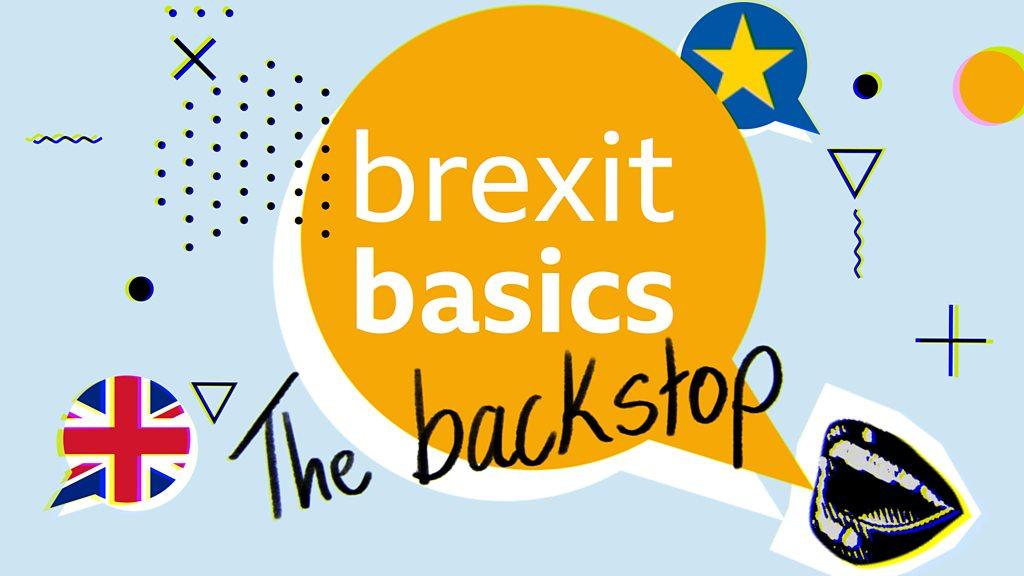EU mulls new emergency summit to 'get Brexit deal done'
- Published
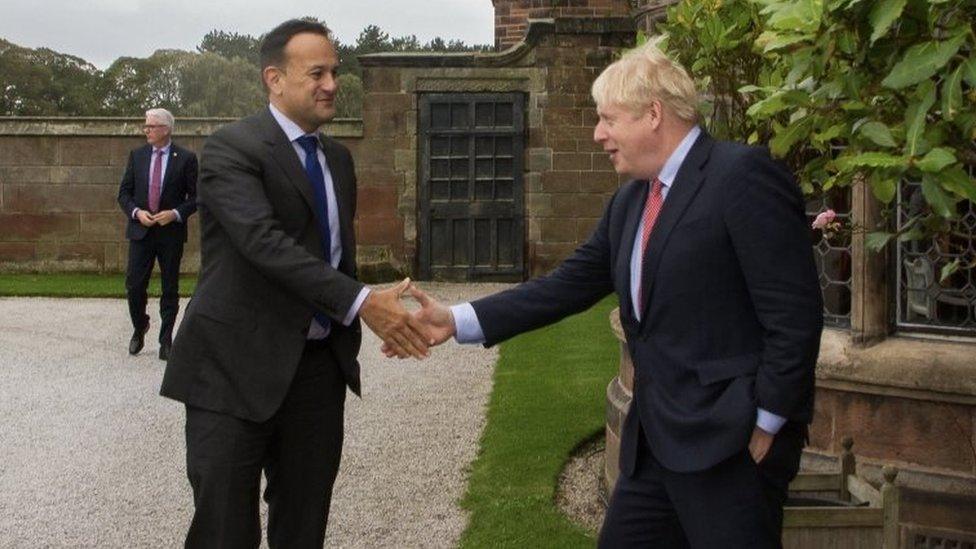
It seemed an understanding had been reached between Boris Johnson and Leo Varadkar last week
It's extremely hard to see how a new Brexit deal can still be agreed by this Thursday.
Negotiations continue - but time is tight, and, to use the words of even the most upbeat of those involved, "there's still much work to do".
EU internal talk is focussing now on a possible "holding pattern statement" at this week's EU leaders summit, along the lines of "we've made great progress in negotiations but still need more time".
There are also renewed mutterings about a new Brexit summit maybe towards the end of the month.
So how did we get here?
At the end of last week there was hope in the air. It seemed an understanding had been reached between Boris Johnson and the Irish Taoiseach (Prime Minister), Leo Varadkar.
Now there's lots of speculation, smoke and mirrors - but no sign of white smoke that a new Brexit deal is nigh.
"We felt last week that things would now move very quickly," one northern European diplomat told me. "Now we realise we're still pretty far apart."
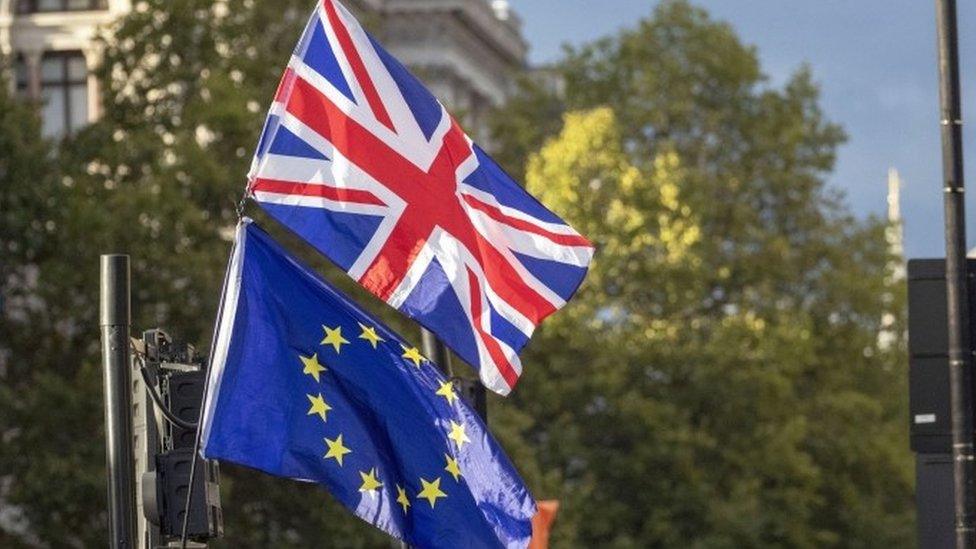
Realistically there is no time this week to work out a painstaking middle ground between the EU and UK positions
Replacing the Irish backstop guarantee remains the main stumbling block in ongoing negotiations, particularly when it comes to customs.
The EU's dual priorities complicate things. Brussels wants:
To protect the Northern Ireland peace process - and big EU powers Germany and France say they're delighted the UK and Ireland are now talking about solutions
To protect the EU's single market on the island of Ireland after Brexit, and here EU leaders think Boris Johnson's Brexit proposals don't go far enough
The European Commission says both sides - the EU and UK - are negotiating in good faith, but the not so secret EU hope right now is that time pressure and political pressure will build on Mr Johnson to such an extent this week, that he might yet blur some more of his red lines.
The EU thinking is that the UK prime minister is running out of options. He promised to do his best to deliver a new Brexit deal this week and he promised not to ask for another Brexit extension.
With so little time to go before the EU summit, Brussels believes the only option for a deal is for Mr Johnson to pivot towards an already set-to-go replacement for the current UK-wide Irish border backstop.
And this is the EU's preferred option: a backstop that would see only Northern Ireland, not the rest of the UK, following EU customs rules after Brexit, while not affecting its territorial identity as part of the UK.
Confused by Brexit jargon? Reality Check unpacks the basics.
Now for those who've followed the twists and turns of the Brexit process, you'll recognise the EU proposal as what was formally known as the Northern Ireland-only backstop.
Meanwhile, Mr Johnson's offer is reminiscent of his predecessor Theresa May's Chequers plan for two customs systems (one EU, one UK) on the island of Ireland.
Each proposal was roundly rejected by the other side.
The difference now is the political will to get a deal done. And not just in Downing Street.
Those in the UK who claim the EU wants another Brexit extension to keep the UK in the bloc as long as possible are mistaken.
EU leaders are fed up with the Brexit process. They want a deal.
Realistically there is no time this week to work out a painstaking middle ground between the EU and UK positions.
And EU leaders are adamant that they won't be negotiating directly with Boris Johnson at the summit.
Germany, France and others say they want a Brexit deal they can live with, rather than something cobbled together in a rush to "get it over with" that could leave problems for the Northern Ireland peace process and/or the single market for years to come.
While the technical details need to be ironed out (and that cannot be taken for granted), the EU political mood is determinedly more can-do now.
If the prime minister balks at doing a U-turn on a Northern Ireland-only backstop, despite being encouraged by still-to-be revealed EU sweeteners, then negotiations towards a hybrid solution will likely pick up again next week.
First, though, all EU eyes would be on Westminster and the extraordinary session of Parliament on Saturday to see if another Brexit extension will be requested, or not.
What could Brexit mean for sausage rolls?
- Published8 October 2019
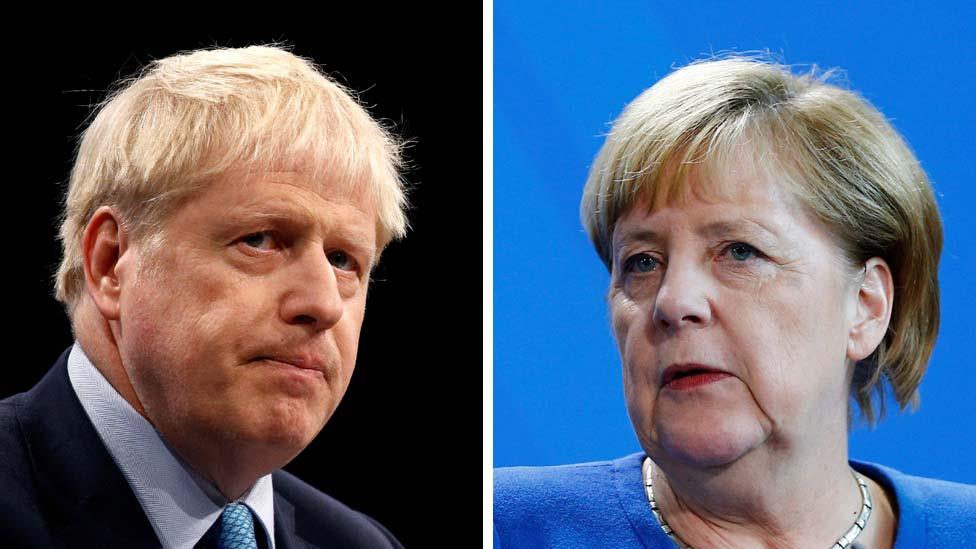
- Published7 October 2019
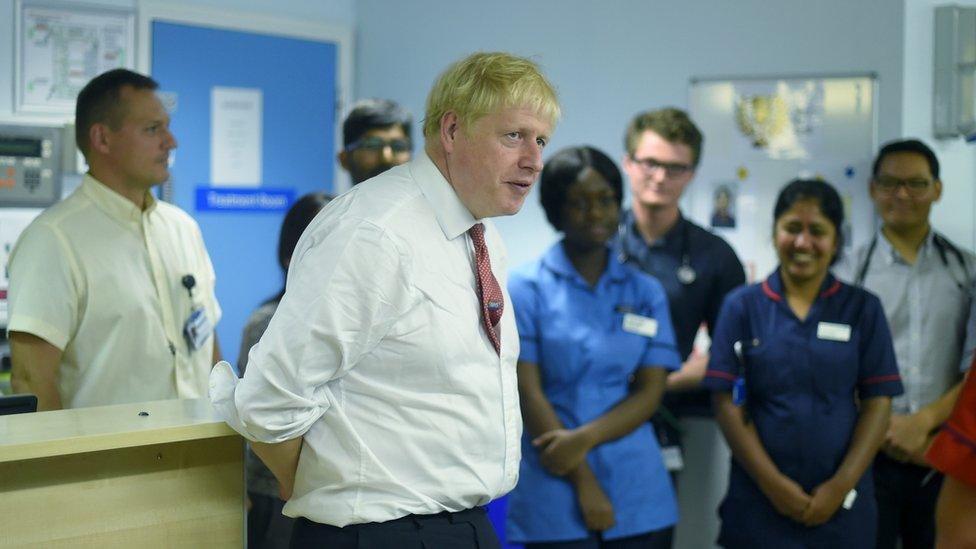
- Published7 October 2019
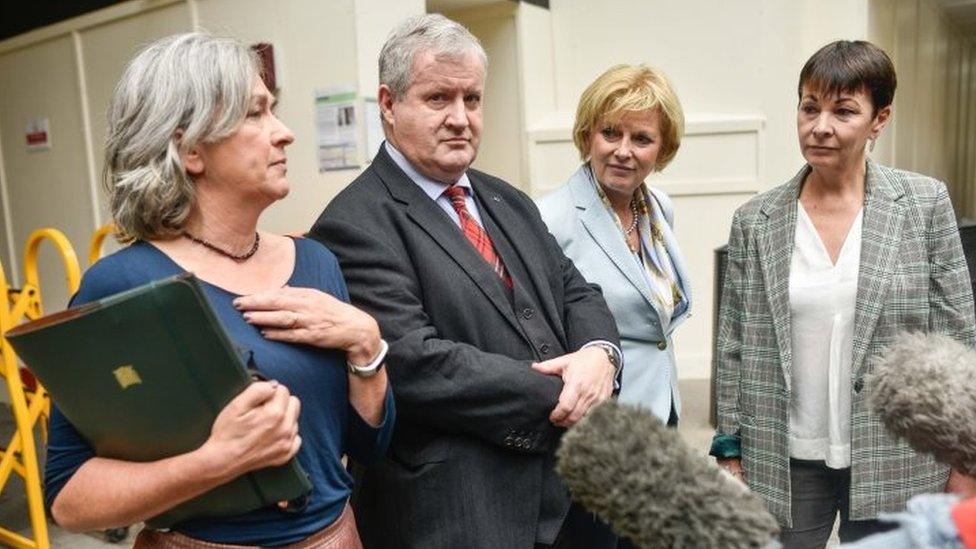
- Published13 September 2019
